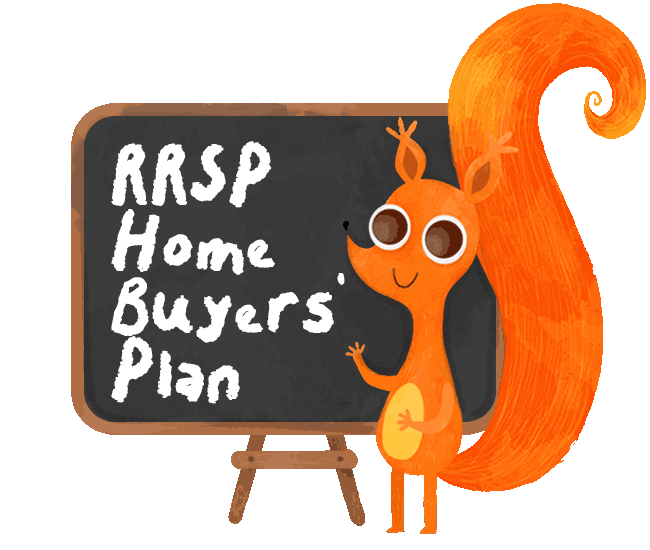
Think putting a down-payment on your dream home is just too far out of your reach? Well, the Canadian government is trying to help you out with through the RRSP Home Buyers’ Plan (HBP). A tax-free way to fund your mortgage down payment, the RRSP Home Buyers’ Plan is an awesome tool to help you get closer to owning your first home (and one that few people actually know about).
In short, the Home Buyers’ Plan allows first time home-buyers to take an tax-free loan from their Registered Retirement Savings Plan (RRSP) for a down payment on a qualifying home. Fun fact: as of March 19, 2019, the Canadian Federal government increased the amount from $25,000.
If you’re purchasing with someone who is also a first time home-buyer, you can both withdraw $35,000 from your RRSP for a combined total of $70,000, tax-free.
This all sounds awesome right? Just don’t forget the money is considered a loan from your RRSP, so it has to be repaid within 15 years. If you don’t refill your RRSP, the amount will be considered a formal withdrawal and added to your taxable income. It’s also important to note that when repaying the amount back into your RRSP you do not receive the tax credit that you got the first time around.
To be considered an eligible first-time home buyer and use the RRSP Home Buyers’ Plan you must meet the following criteria (you can see a more detailed list on the CRA website):
Once you’ve established that you’re eligible to make use of the HBP, it’s time to fill out some good old forms. The form you’re looking for is Form T1036 (AKA the Home Buyers’ Plan Request to Withdraw Funds from an RRSP”) that’s available on the Canada Revenue Agency’s Website.
Once you’ve filled out this form, give it to the institution that holds your RRSP.
Don’t forget this key rule: the withdrawal must be made within 30 days of taking title on the home. Don’t wait and try and withdrawal the money past 30 days of taking the title on your home because you will no longer be eligible for the HBP and you’ll be taxed on the amount you withdraw (Yikes!).
Okay, here’s where things get relatively less fun. Since the Home Buyers’ Plan is technically considered a loan (interest free, though – yay!), the Canadian Revenue Agency gives you 15 years to repay the amount you took out for your home. The first payment (1/15 of the initial withdrawal total) is due back to your RRSP two years after your withdrawal.
Forget what you owe? Don’t fret, the CRA will indicate the balance you have to repay, the amount you have already repaid, and the amount of your next payment on your Notice of Assessment, as well as on a HBP account statement you’ll receive.
If you have questions about your HBP balance you can login to your CRA MyAccount or give them the CRA a call at 1-800-959-8281. To get started with repaying, you have to make a contribution to your RRSP in the year the repayment is due or within the first 60 days of the following year.
Of course, you’re welcome to make more than your minimum payments to reduce it quicker. Either way, however, you need to be making the minimum or else you’ll default on your HBP, leading to you being taxed on the amount you withdrew from your RRSP.
Another key thing to note is that you have to report these contributions as HBP loan repayments on your T-1 General Income Tax Return. These payments are not contributions, they’re repayments and you won’t get RRSP tax credits for repayments. This is another reason why some Canadians may default on their HBP.
Well, there you have it: almost everything you need to know about the RRSP Home Buyers’ Plan. As always, if you have any questions about if you qualify or if this is something that makes sense for your financial plan or if you can book a call.
YOUR FREE FINANCIAL PLAN
Are you ready to invest in your future?
Build your free plan today.
Start now